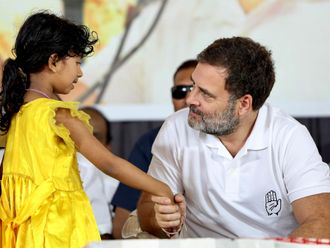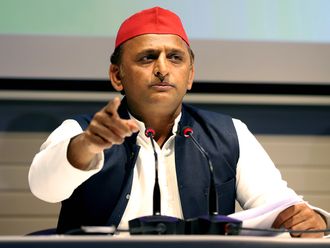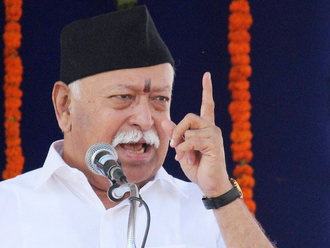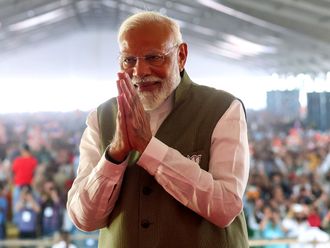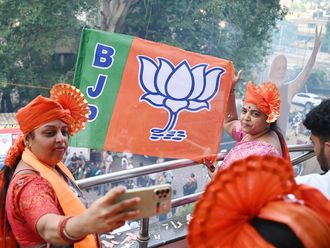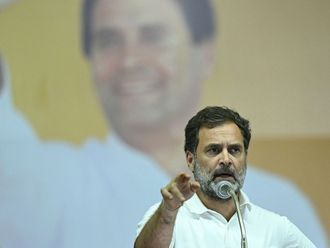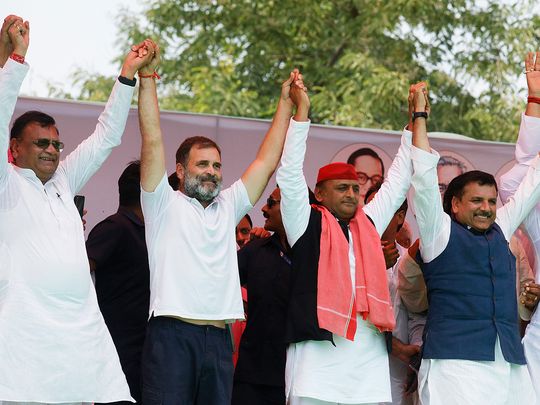
In the current general elections in India, the Bharatiya Janata Party (BJP), aiming for a third consecutive term, is ahead in opinion polls.
The opposition, led by Rahul Gandhi and the coalition called INDIA (Indian National Developmental Inclusive Alliance), accuses the BJP of abusing federal agencies and financial influence to secure electoral advantages, citing the arrest of prominent leaders and the freezing of the Congress Party’s bank accounts.
Despite these challenges, India’s opposition parties are positioning themselves for a potential upset in the 2024 elections. A lower voter turnout in the initial three phases of voting compared to the previous election has made the cadre-based ruling party vulnerable.
The opposition has united through alliances and coalitions to counter the dominance of the BJP, led by Prime Minister Narendra Modi. A more cohesive opposition has improved its chances by strategically contesting seats and minimising vote splitting.
The Congress Party has notably shifted its strategy for the 2024 elections by choosing to contest fewer seats than before, reflecting its 2004 approach that prioritised alliances over solo contests, which resulted in the BJP-led NDA’s defeat. By adopting a strategy emphasising collaboration and strategic partnerships, Congress aims to replicate this earlier success and challenge the current BJP-dominated political landscape.
After a decade of BJP rule, opposition parties are tapping into anti-incumbency sentiments. A large segment of the population appears to be dissatisfied with the government’s handling of economic growth, inflation, unemployment, and social tensions, providing an opening for the opposition. While the BJP focuses on polarising voters, the Congress-led opposition maintains its focus on rising unemployment, inflation, and concerns about social cohesion.
Despite macroeconomic growth, India faces persistently high unemployment, especially among the youth. A significant portion of the working-age population struggles to find suitable jobs.
The demonetisation exercise and the Covid-19 pandemic significantly disrupted the economy, causing widespread job losses and business closures. Many people, particularly in informal and daily-wage sectors, were left without stable employment.
Public dissatisfaction
Economic recovery has been slow, and many who lost jobs have not yet regained them. Due to these economic shifts, many have transitioned from formal to informal employment, which often lacks security, benefits, and fair wages. This underemployment exacerbates public dissatisfaction.
States with high unemployment face additional pressure due to limited local opportunities, which has made this a significant issue at the regional level. Voters expect policies that encourage job creation through reforms, economic incentives, and support for entrepreneurship. The perceived gap between expectations and results intensifies unemployment as a major political issue.
Different regions have distinct political and economic grievances. Some states, particularly in southern and eastern India, feel marginalised in national policy-making, leading to dissatisfaction with the central government. Several policies, including the 2016 demonetisation exercise, the Goods and Services Tax (GST), and repealed so-called agricultural reforms, have contributed to public discontent.
Despite some infrastructure and development initiatives over the past decade, many rural and underserved areas still face poor connectivity. The rise of stronger regional parties in Tamil Nadu, Bihar, and West Bengal, and opposition alliances in Uttar Pradesh and Maharashtra, gives voters credible alternatives to express their dissatisfaction more effectively.
Rahul Gandhi and other opposition leaders focus on state-specific issues to appeal directly to voters, gaining traction in regions where the BJP lacks traditional strength.
Stability, equity, and inclusive governance
Economic issues such as unemployment, inflation, and post-pandemic recovery are now paramount for many voters. Economic concerns seem to be outweighing identity politics, compelling voters to focus on jobs, growth, and infrastructure. After nearly a decade of divisive rhetoric and policies, many segments of the population are growing weary of polarisation. They now prioritise stability, equity, and inclusive governance over divisive politics.
Availing the opportunity, Congress and its allies are now uniting marginalised communities, religious minorities, and others alienated by BJP policies through inclusive rhetoric to broaden their voter base. Economic disenchantment has left significant portions of the electorate, especially the youth, struggling with joblessness and underemployment. This economic distress, coupled with the social upheaval from divisive policies, drives various communities toward the opposition.
The Congress-led opposition’s strategy includes addressing regional disparities and economic grievances by focusing on state-specific agendas resonating with regions marginalised by central policies. The emergence of strong regional parties within the coalition provides a solid platform to challenge the BJP’s traditional strongholds.
By emphasising issues such as job creation, economic recovery, and inclusive growth, and steering the electoral discourse from identity politics toward governance and stability, Rahul Gandhi and the opposition aims to offer a compelling alternative that appeals to the broader electorate.
This approach, focused on uniting marginalised communities and emphasising economic issues over divisive politics, positions the Congress-led alliance as a formidable force that could achieve a spectacular political upset in the 2024 elections.



